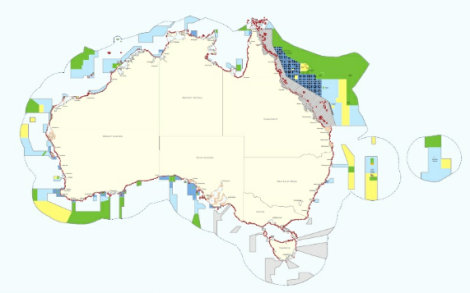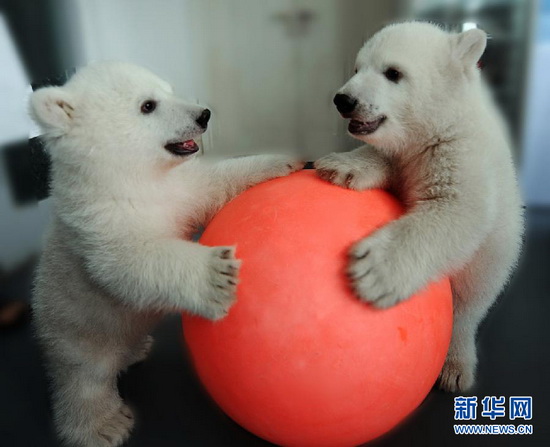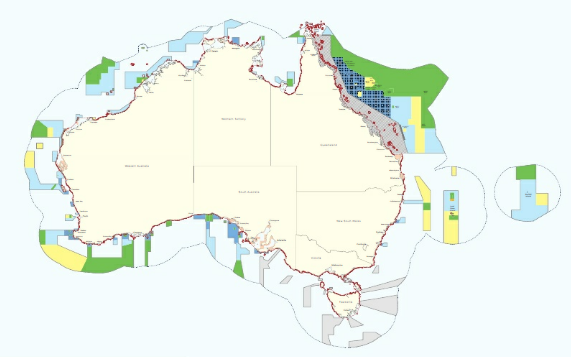Once every few summers, the world meets in one of its greatest cities for a competition with roots that extend far back into history. Bravado on display, nations vie for the right to brag that their nation truly leads the pack.
Obviously, I’m talking about the Earth Summit.
Every time there’s an international environment confab, it seems like countries take advantage of the moment to announce major green initiatives. Before the 2009 United Nations Climate Change Conference in Copenhagen, the United States and India announced a new partnership aimed at curbing emissions. At the same conference in Durban last year, Canada declared its intention to contribute $1.2 billion to greenhouse gas reduction.

Map of protected areas.
This year, the competition started early — and with an impressive salvo.
Australia today announced that it is creating the world’s largest marine reserve, setting aside 3.1 million square kilometers (1.2 million square miles) that cannot be used for commercial fishing or fossil fuel exploration. In order to offset losses incurred, the government will allocate $100 million AUS to fishermen displaced by the new reserves.
Though environmental groups worry the protections are insufficient, 3.1 million square kilometers is larger than Alaska, California, Texas, and Montana combined. Which understandably leads to some bragging.
“It’s time for the world to turn a corner on protection of our oceans,” [Australia Environment Minister Tony] Burke said as he announced the plans today.
“Australia today is leading that next step.”
Translation: Your move, rest of the world. You look good in this rear view mirror.



